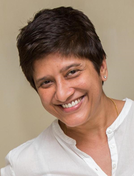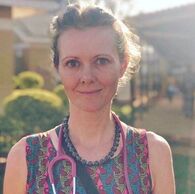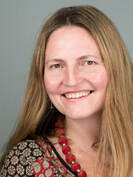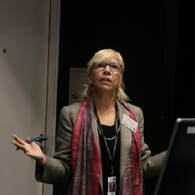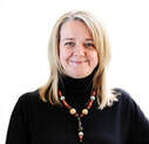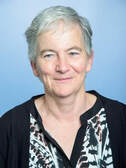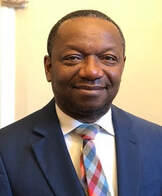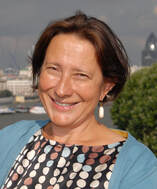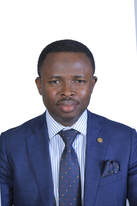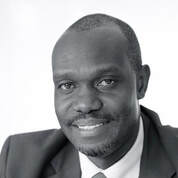2020 Speakers include
Indie KaurIndie Kaur is the Director of Midwifery at Fernandez Hospital, Hyderabad. She has spent the last two years in India training professional midwives in Fernandez and in the public private partnership with the Government of Telangana and UNICEF. She has been acknowledged in the ‘’Strengthening of Midwifery Guidelines’’ launched in Nov 18. Fernandez Foundation is now one of the first sites training midwifery educator’s in India. She is passionate about reducing maternal mortality via the midwifery training and respectful humanised care for Indian mothers. Her previous role was Consultant Midwife for Public Health with Bart’s Health NHS Trust. She is also a member of the East London Saving Lives (ELLY) team and as a team leader she has provided Multidisciplinary Obstetric and Midwifery Simulation (MOMS) training in India. She is passionate about reducing health inequalities for vulnerable women. She has successfully launched, in partnership with My Body Back Project, the world’s first maternity clinic in the Royal London Hospital to support women who have experienced sexual violence. She has successfully developed a seamless pathway of care for women with complex social needs in a deprived East London area reducing inequality of health care and ensuring access to vulnerable groups of women accessing care. This initiative won a BMJ award.
Kathy BurgoineKathy Burgoine is a UK trained paediatrician, who is passionate about improving neonatology in resource-limited settings. She is currently based in Mbale in Eastern Uganda, where she has worked for 6 years. In 2014 she began the development of neonatal care across eastern Uganda, opening the first neonatal unit in the region in 2015. The neonatal unit now admits almost 3000 neonates a year and the mortality has dropped dramatically during this time. She is a firm believer in simple, sustainable and affordable changes and has published her experiences on a variety of aspects of her work. She is currently undertaking her PhD in neonatal sepsis as part of an NIH-funded study looking at the origins of neonatal sepsis in Uganda. She is also co-investigator on a cluster randomised trial in Eastern Uganda, BabyGel, evaluating the effectiveness of including alcohol hand rub in birthing kits to prevent neonatal sepsis. A key focus of her work is training and education. She founded a charity called Born on the Edge, www.bornontheedge.org that continues to provide much needed training and education in neonatal care across Eastern Uganda. Kathy has developed a 14-module newborn care training course which is now taught regularly by 3 local neonatal trainers throughout the region. As an honorary lecturer at Busitema medical school she leads the neonatal training for the medical students and MMed students.
|
Sally TheobaldProfessor Sally Theobald is the Chair in Social Science and International Health at Liverpool School of Tropical Medicine. She has a Masters in Gender and Development, a PhD in Gender, Health and Development and over 20 years’ experience of research, training and partnership on gender equity and health systems strengthening in Africa and Asia. She has wide ranging experience of designing and implementing research projects in health, equity, gender and governance and has worked collaboratively on research for health systems strengthening in HIV, TB, SRH, maternal health and health systems in Thailand, Bangladesh, Indonesia, Cambodia, South Africa, Burkina Faso, Malawi , Ethiopia, Kenya, Liberia, Mozambique, Sierra Leone, Zimbabwe and Uganda. She is interested in health systems strengthening systems in different contexts (including in fragility and in informal urban settlements) and has experience in implementation and participatory research. Annie PortelaAnnie Portela is Senior Technical Officer at the World Health Organization (WHO/MCA) in Geneva. She has worked with governmental and non-governmental organizations for over 20 years in designing and implementing programmes for Maternal-Newborn-Child Health, linking facility-based and community-based services. Particular areas of focus include access to care for underserved populations and woman and community participation in the design of health programmes and services. In order to achieve this she has specialized in bringing together different stakeholders to identify problems and find solutions, including representatives of governments, health services, NGOs, local leaders, community groups, academia and international partners. She is currently leading WHO’s evidence reviews on health promotion interventions for maternal, newborn and child health, and has supported WHO’s work to address complexity in guideline development, work which requires an interdisciplinary focus. She manages several WHO/MCA implementation research projects, addressing the need to facilitate dialogue between policy makers, researchers, programme implementers and service users, and develop processes to support programme learning.
|
